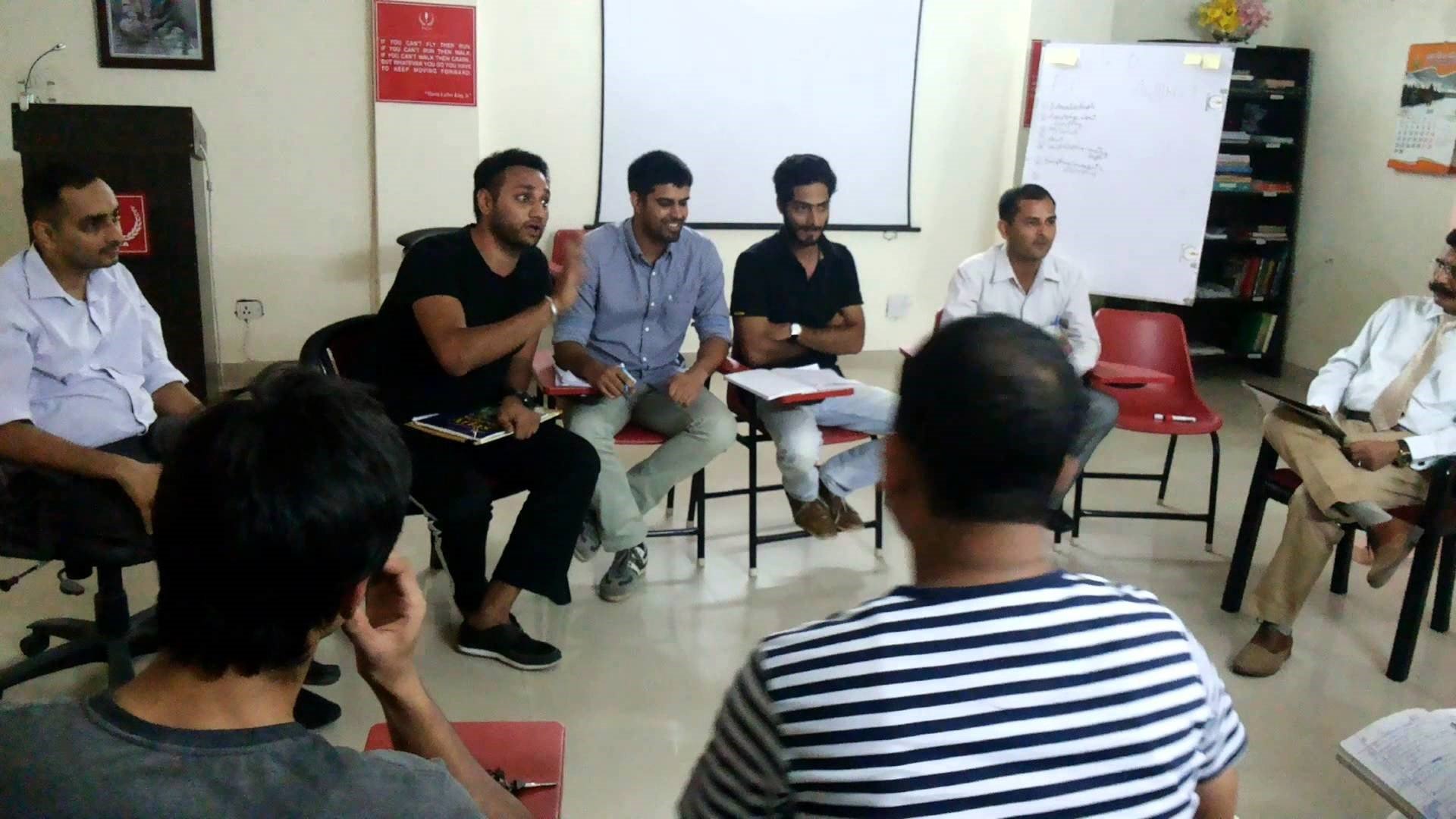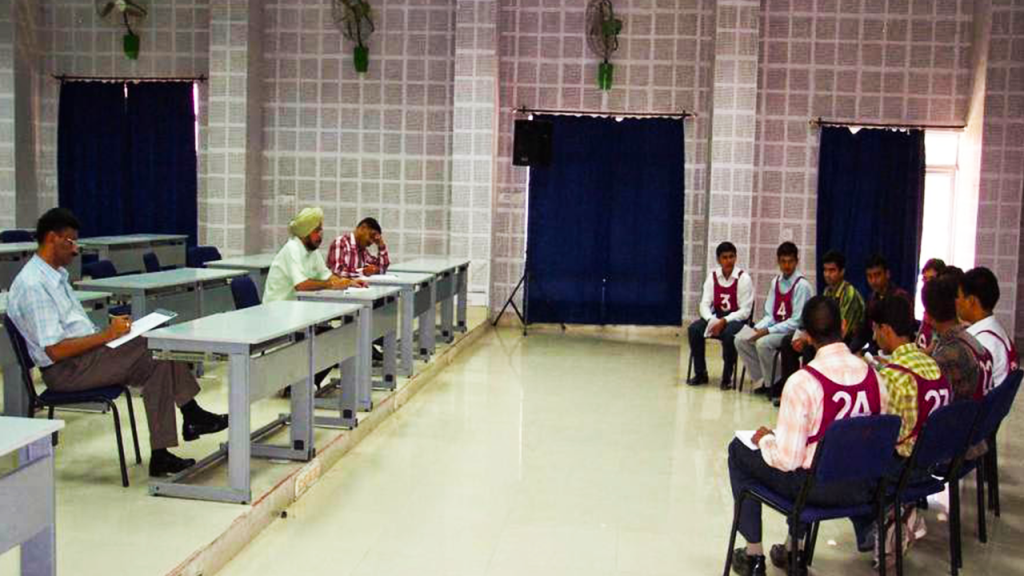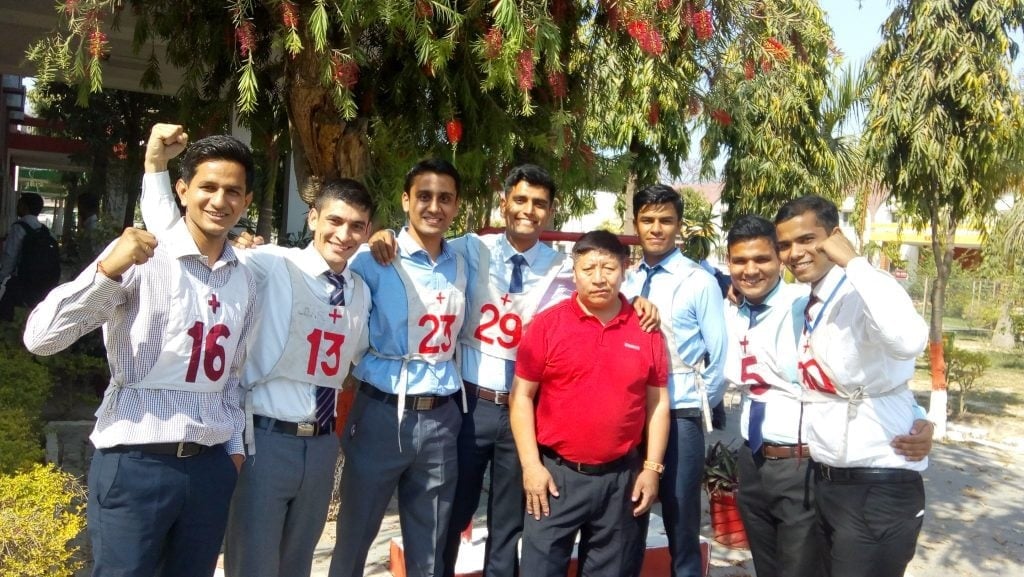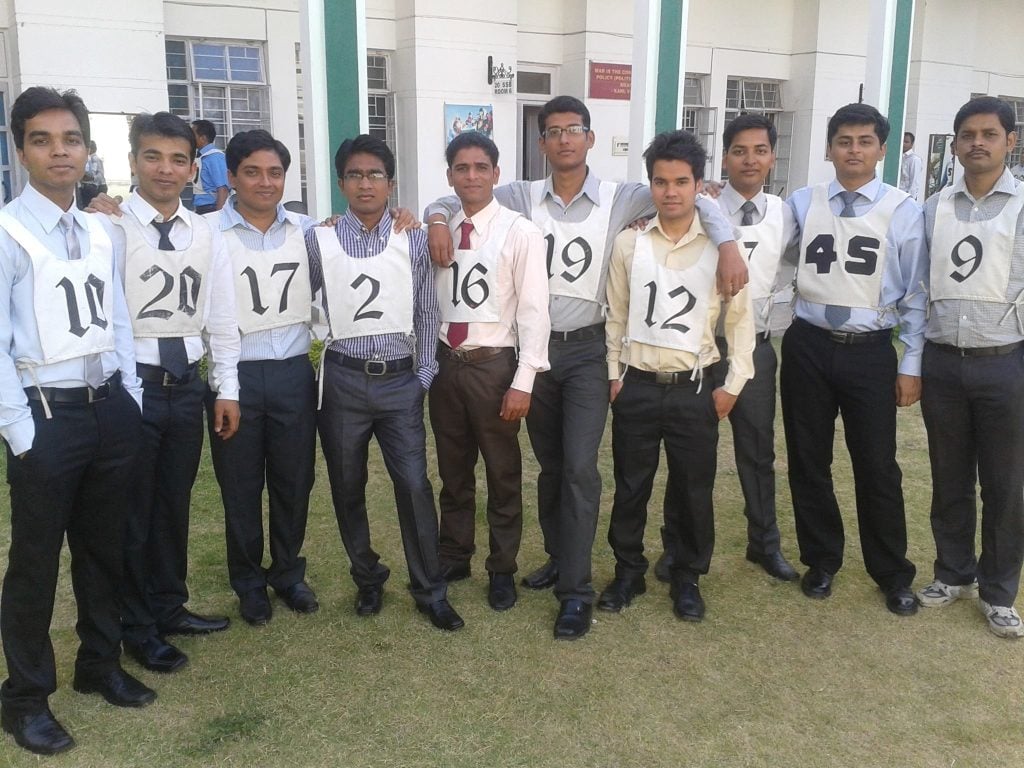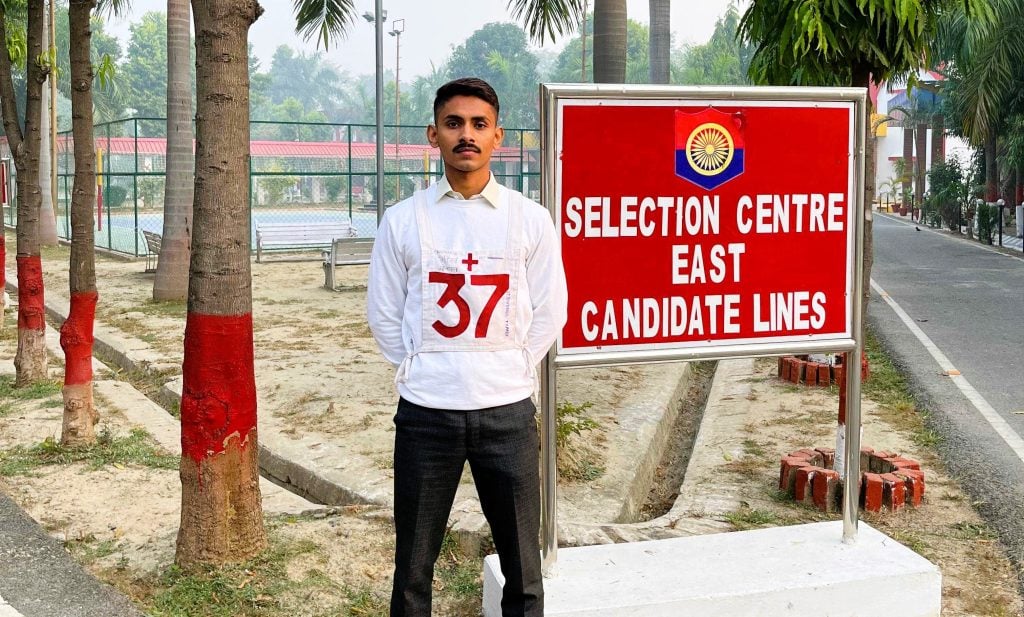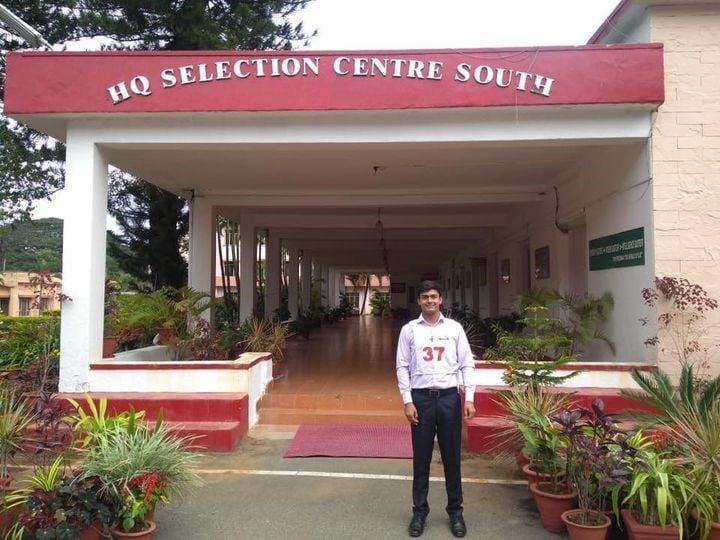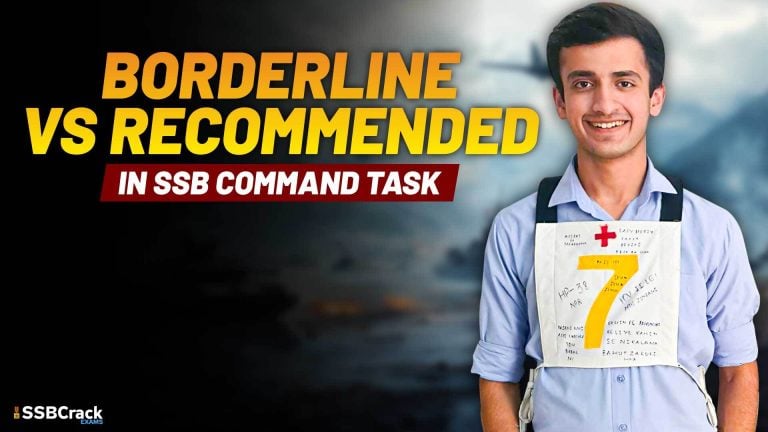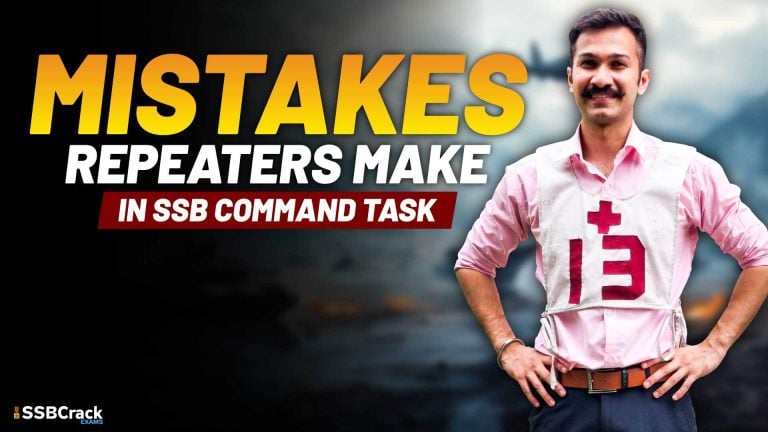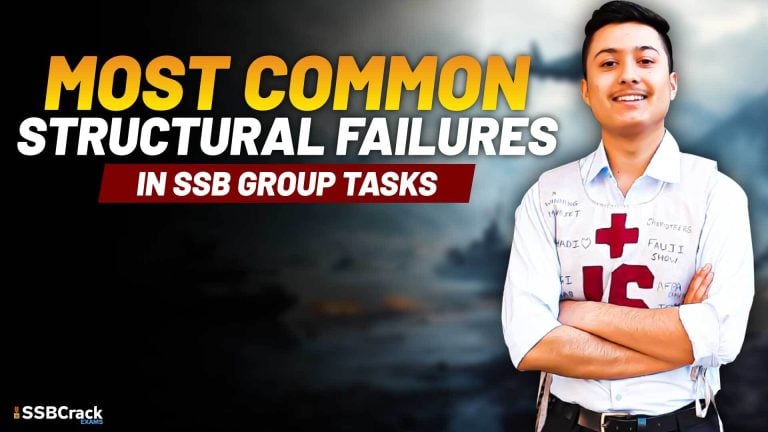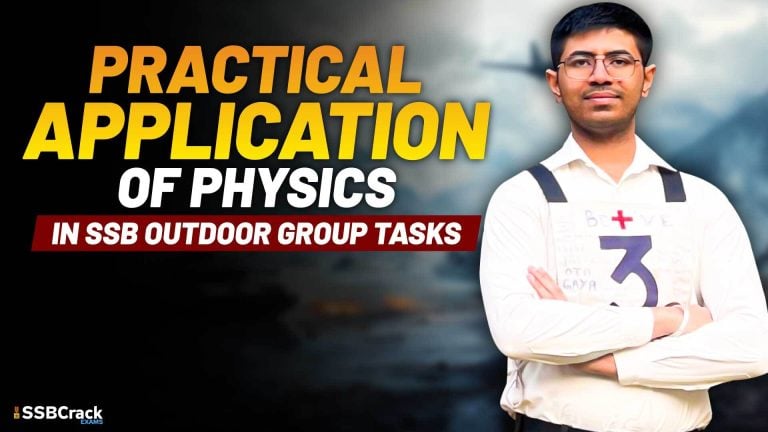Preparing for the prestigious Services Selection Board (SSB) interview is a rigorous and multifaceted endeavor for aspiring officers in the Indian Armed Forces. One crucial component of this process is the Group Discussion (GD) round, where candidates are assessed on their communication skills, leadership abilities, and critical thinking.
As the SSB Interview approaches, it is essential for candidates to familiarize themselves with the most relevant and thought-provoking GD topics that are likely to be encountered.
In this comprehensive guide, we will delve into the Top 50 Group Discussion Topics for SSB 2024. By equipping you with a deep understanding of these topics, we aim to empower you to excel in the GD round and increase your chances of securing a coveted position in the Indian Armed Forces.
Also Read | Top 25 SRT Questions Asked in SSB Interviews
Understanding the Significance of Group Discussion in the SSB Interview
The Group Discussion (GD) is a critical component of the SSB interview process, designed to assess a candidate’s ability to communicate effectively, think critically, and work collaboratively within a team. During the GD, candidates are presented with a topic and are expected to engage in a lively discussion, sharing their perspectives, listening to others, and building consensus.
Through the GD, the Selection Board evaluates a range of officer-like qualities, including self-confidence, reasoning ability, communication skills, group influencing ability, cooperation, and social adaptability. Candidates who demonstrate strong leadership, effective teamwork, and the ability to articulate their ideas clearly are more likely to secure a recommendation from the SSB.
Top 50 Group Discussion Topics for SSB Interview 2024
1. The Role of Artificial Intelligence in Modern Warfare
Discuss the transformative impact of AI on military strategies, operations, and decision-making processes. Explore the potential benefits, challenges, and ethical considerations surrounding the integration of AI in warfare.
2. Climate Change and Its Impact on National Security
Analyze the multifaceted ways in which climate change poses threats to national security, including resource scarcity, natural disasters, and geopolitical tensions. Discuss the importance of proactive measures to address these climate-related security risks.
3. Cybersecurity Threats in the Digital Age
Examine the evolving landscape of cyber threats, such as data breaches, infrastructure attacks, and information warfare. Discuss the critical role of cybersecurity in safeguarding national interests and the strategies India can employ to strengthen its cyber defenses.
4. Women in Combat Roles
Debate the merits and challenges of integrating women into combat positions within the armed forces. Discuss the potential benefits, societal implications, and necessary policy changes to support this transition.
5. The Future of Space Warfare
Speculate on the potential for conflicts and the need for international cooperation and treaties in the realm of space exploration and exploitation. Analyze the strategic and technological advancements that may shape the future of space-based military operations.
6. India’s Foreign Policy in a Multipolar World
Discuss India’s diplomatic strategies and the evolving geopolitical landscape, marked by the rise of multiple power centers. Evaluate India’s approach to navigating complex international relations and advancing its national interests.
7. The Impact of Social Media on Society
Examine the far-reaching influence of social media on public opinion, social behavior, and information dissemination. Debate the positive and negative implications of social media’s pervasive presence in modern society.
8. Global Terrorism: Trends and Responses
Analyze the evolving nature of terrorism, including the emergence of new ideologies, tactics, and transnational networks. Discuss the global community’s efforts to combat terrorism and the challenges in developing effective counter-terrorism strategies.
9. Economic Reforms and Their Impact on the Defense Sector
Explore the relationship between economic policies and the defense sector, including the implications of budgetary allocations, military modernization, and the role of the private industry in defense production.
10. The Role of the United Nations in Conflict Resolution
Evaluate the effectiveness of the United Nations in maintaining global peace and security. Discuss the organization’s strengths, limitations, and the need for reform to enhance its ability to address contemporary international conflicts.
11. The Ethics of Drone Warfare
Debate the moral and legal implications of using unmanned aerial vehicles (drones) in military operations, considering factors such as civilian casualties, targeted killings, and the erosion of traditional warfare principles.
12. National Education Policy and Its Impact on Youth
Discuss the potential impact of India’s National Education Policy on the development and empowerment of the country’s youth. Analyze the policy’s ability to address the evolving educational needs and foster the next generation of leaders.
Also Read | 7 Tips to Ace the Screening Test in SSB Interview
13. The Role of Technology in Disaster Management
Explore how advancements in technology, such as early warning systems, satellite imagery, and data analytics, can enhance disaster preparedness, response, and mitigation efforts. Discuss the challenges and opportunities in leveraging technology for effective disaster management.
14. India’s Approach to Renewable Energy
Analyze India’s strategies and policies for the adoption and promotion of renewable energy sources, such as solar, wind, and hydropower. Discuss the country’s progress, challenges, and the long-term implications for energy security and sustainability.
15. The Relevance of Non-Alignment Movement Today
Assess the continued significance of the Non-Alignment Movement in the context of contemporary international relations. Discuss the benefits and limitations of this approach in a rapidly changing global order.
16. Agriculture Reforms and Their Impact on Rural India
Examine the effects of agricultural reforms, such as the recent farm laws, on the livelihoods, socioeconomic conditions, and overall development of rural India. Debate the potential trade-offs and the need for balanced policies.
17. Mental Health Awareness in the Armed Forces
Discuss the importance of addressing mental health concerns within the armed forces, including the stigma, support systems, and the need for comprehensive mental health programs for military personnel.
18. The Influence of Globalization on Indian Culture
Explore the impact of globalization on the preservation and evolution of India’s rich cultural traditions, values, and societal norms. Analyze the challenges and opportunities presented by the cross-cultural exchange.
19. Sports as a Tool for National Integration
Discuss how sports can be leveraged to promote unity, patriotism, and a shared sense of national identity among diverse communities within India. Examine the role of sports in fostering social cohesion and national pride.
20. The Role of Media in Shaping Public Opinion
Analyze the power and responsibility of the media in a democratic society, particularly in the context of its ability to influence public opinion, shape narratives, and hold the government and institutions accountable.
21. The Impact of Privatization on the Indian Economy
Debate the benefits and drawbacks of privatizing state-owned enterprises in India. Discuss the potential implications for economic growth, efficiency, and the role of the government in the market.
22. India’s Role in Tackling Global Poverty
Explore India’s contributions and leadership in international efforts to alleviate poverty, including initiatives, partnerships, and the country’s own experiences in addressing socioeconomic disparities.
23. The Importance of Water Conservation
Discuss the growing challenges of water scarcity and the need for comprehensive strategies to conserve, manage, and equitably distribute water resources in India. Propose innovative solutions to address this critical issue.
24. The Challenge of Urbanization in India
Analyze the problems and potential solutions associated with the rapid urbanization of India, including issues related to infrastructure, housing, resource allocation, and the integration of rural-urban migration.
25. Space Exploration: Is it Worth the Cost?
Debate the merits and drawbacks of investing in space exploration programs, considering factors such as scientific advancements, technological innovations, and the opportunity cost of allocating resources to these endeavors.
26. The Impact of Pop Culture on Youth
Explore the influence of popular culture, including music, movies, and social media, on the behavior, aspirations, and value systems of young people in India. Discuss the potential positive and negative implications of this influence.
27. Legalization of Marijuana: Pros and Cons
Discuss the potential benefits and risks of legalizing the use of marijuana, considering factors such as medical applications, recreational use, public health, and the social and legal implications.
28. The Role of NGOs in Social Development
Evaluate the contributions of non-governmental organizations (NGOs) to social, economic, and environmental development in India. Analyze the challenges faced by NGOs and the need for effective collaboration with the government and the private sector.
29. Economic Inequality: Causes and Solutions
Analyze the root causes of economic disparity in India, including factors such as access to education, healthcare, and employment opportunities. Propose potential solutions and policy interventions to address the issue of economic inequality.
30. India’s Defense Preparedness in the Context of Regional Tensions
Discuss India’s military readiness and strategic capabilities in the face of evolving regional security challenges, such as border disputes, cross-border terrorism, and the need for deterrence against potential adversaries.
31. Artificial Intelligence: Boon or Bane?
Debate the advantages and challenges posed by the rapid advancements in artificial intelligence across various sectors, including healthcare, transportation, and national security. Explore the ethical considerations and the need for responsible AI development and deployment.
32. The Future of Work in a Post-Pandemic World
Explore the transformations in the job market, work environments, and employment practices that have emerged in the aftermath of the COVID-19 pandemic. Discuss the implications for the future of work and the necessary adaptations by both employers and employees.
33. The Role of Ethics in Business
Discuss the importance of ethical conduct, corporate social responsibility, and sustainability in the Indian business landscape. Analyze the challenges in upholding ethical principles and the potential benefits for businesses and society.
34. Environmental Sustainability: Need of the Hour
Emphasize the urgency of adopting sustainable practices, policies, and technologies to address pressing environmental issues, such as climate change, biodiversity loss, and resource depletion. Explore India’s role and strategies in this global effort.
35. The Impact of Global Trade Wars
Analyze the effects of ongoing trade disputes and tensions between major economic powers on the global economy, including their impact on India’s trade, investments, and overall economic growth.
36. The Role of Startups in Economic Growth
Discuss the contributions of the startup ecosystem to innovation, job creation, and economic development in India. Explore the challenges faced by startups and the policies required to foster a thriving entrepreneurial culture.
37. India’s Position in the Global Climate Agenda
Evaluate India’s policies, actions, and commitments towards addressing climate change, both domestically and in the international arena. Assess the country’s role and leadership in the global climate change mitigation and adaptation efforts.
38. Social Justice and Equality in Modern India
Explore the persistent challenges and progress made in achieving social justice, equal rights, and inclusive development for all sections of Indian society. Discuss the role of the government, civil society, and individual citizens in this endeavor.
39. The Influence of Technology on Education
Discuss the transformative impact of technological advancements, such as online learning, digital classrooms, and educational technology, on the Indian education system. Analyze the benefits, challenges, and the need for effective integration of technology in teaching and learning.
40. The Importance of Financial Literacy
Emphasize the critical need for financial education and awareness among the Indian population to ensure individual and household financial stability, responsible decision-making, and overall economic well-being.
41. Global Health Issues and India’s Role
Explore India’s contributions and leadership in addressing global health challenges, including the development and distribution of vaccines, the management of pandemics, and the provision of medical aid and expertise to the international community.
42. The Role of Science and Technology in National Development
Discuss the pivotal role of scientific research, technological innovation, and the application of cutting-edge knowledge in driving India’s economic growth, social progress, and national security.
43. Freedom of Speech: Limits and Responsibilities
Debate the delicate balance between the fundamental right to freedom of speech and the need for responsible communication, considering factors such as national security, public order, and the prevention of hate speech and misinformation.
44. The Impact of Tourism on India’s Economy
Analyze the multifaceted contributions of the tourism industry to India’s economic development, including job creation, foreign exchange earnings, and the preservation of cultural heritage. Discuss the challenges and strategies for sustainable tourism growth.
45. The Future of Electric Vehicles in India
Discuss the potential and challenges of transitioning towards electric vehicles in India, considering factors such as infrastructure development, technological advancements, policy frameworks, and the impact on the automotive industry and environment.
46. The Role of Youth in Nation Building
Emphasize the crucial role of India’s youth in shaping the country’s future, their contributions to social, economic, and technological progress, and the need to empower and engage them as active participants in nation-building.
47. India’s Cybersecurity Strategy
Discuss the measures India is taking to protect its digital infrastructure, critical systems, and sensitive information from cyber threats, including the development of robust cybersecurity policies, capabilities, and international cooperation.
48. The Challenges of E-Governance
Explore the benefits and obstacles associated with the implementation of e-governance initiatives in India, such as improved service delivery, transparency, and citizen engagement, as well as the technological, infrastructural, and administrative challenges that need to be addressed.
49. The Impact of Artificial Intelligence on Employment
Analyze the potential impact of artificial intelligence on job markets and employment opportunities in India, considering factors such as automation, skill shifts, and the need for reskilling and upskilling of the workforce.
50. India’s Strategy for Achieving Sustainable Development Goals (SDGs)
Discuss India’s approach, progress, and challenges in working towards the United Nations’ Sustainable Development Goals (SDGs) by 2030, including areas such as poverty alleviation, healthcare, education, gender equality, and environmental protection.
Also Read | 8 Essential Body Language Tips for Radiating Confidence
Conclusion
The 50 Group Discussion topics outlined in this article encompass a wide range of contemporary issues and challenges facing India, both domestically and in the global context. By familiarizing yourself with these topics and developing a deep understanding of the underlying complexities, you can significantly enhance your preparation for the SSB interview’s GD round.
Remember, the GD is not merely a test of your knowledge; it is an assessment of your communication skills, critical thinking abilities, and leadership potential. Approach each topic with a balanced perspective, be willing to listen and consider diverse viewpoints, and strive to contribute constructively to the discussion.
Consistent practice, effective time management, and a positive mindset will be crucial in your journey to excel in the SSB interview. Centurion Defence Academy and Defence Wallah are renowned institutions that provide comprehensive SSB coaching, including mock GD sessions, to help you navigate this competitive landscape with confidence.
Best of luck in your pursuit of a prestigious career in the Indian Armed Forces!
FAQs
1. How to prepare GD topics for SSB?
To prepare for group discussion topics, candidates should keep up with current affairs, practice expressing their ideas on different topics, participate in mock discussions, and work on enhancing their public speaking abilities.
2. How to initiate gd in ssb?
To stand out in an SSB Group Discussion, it’s important to understand the basic structure. Start by introducing yourself confidently, keep good posture, and maintain eye contact with the other candidates. Actively listen to others and avoid interrupting while they speak.
3. What is group discussion in SSB?
Group Discussion (GD) holds significant importance in the Service Selection Board (SSB) because it evaluates candidates’ communication abilities, teamwork, leadership skills, and their capacity to articulate their opinions clearly.
4. What is the GD screening for SSB?
On the first day of the SSB schedule, the Group Discussion (GD) is the final assessment during the screening process. Before this, candidates take an aptitude test consisting of 50 questions, which they must attempt twice in two different booklets within a 30-minute time frame.
5. How to perform well in group discussion in SSB?
You should present logical arguments; however, if you lack any, don’t hesitate to speak up. The goal is not just to assess knowledge but also communication skills. If a candidate doesn’t have a point to make, they can contribute to another candidate’s argument by providing relevant examples.
